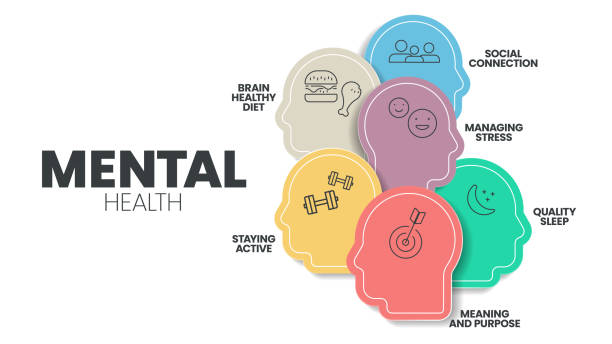How to Master Time Management Skills
With the amount of distracting, pending, and digital constants, it is time to view How to Master Time Management Skills as not just useful, but necessary. Whether you’re in academia, following or achieving your career path, or handling business responsibilities, you will realize that being proficient in time management can have an enormous impact on your productivity, thought clarity, and even general well-being. Disappointments related to missed deadlines and the inability to handle the workload are not new for those who walked on this planet. That is why the guide is aimed at presenting sensible tips and viable strategies that complement time-tested routines. The goal is simple: that you are empowered to control your schedule instead of it controlling you.

Understanding the Value of Time
To launch How to Master Time Management Skills effectively, it is vital to understand the real value of time. Unlike money or possessions, lost time can never be retrieved. Time is lost and will never be regained. Through this you create a clear intention as to how you use your time. If you appreciate the value of time, then your decision-making tends to be more contemplative, you come to understand what things are more important to you, and you have greater purpose in life. Understanding the worth of each moment, you automatically put your attention onto meaningful deeds and drop irrelevant distractions.
Set Clear and Achievable Goals
One of the fundamental aspects of mastering in How to Master Time Management Skills is attained through making specific, limited, and achievable goals. Wants like ‘be more productive’ and ‘do better at work’ are too abstract to guide. Choose the goals that are SMART instead: Globally clear, realistic, possible, current, and timely. Use “Submit the marketing report by Friday at noon” as an example of motivated work and make progress efforts easy to measure. Goals that go beyond the immediate next moment will determine how you spend your time. give you the ability to perform high-impact tasks.
Prioritization: The key to effective time management
Learning means that there are different importance levels for each task. Firstly, determine tasks that bring the highest results for the least effort.
Set a regular daily schedule with a detailed definition of what you would like to do daily, and make it happen.
Creating a timetable in one’s daily life is essential to those who have learned to succeed. Schedule times on your digital calendar/planner for every task that needs to be accomplished. Remember to have break time, mealtime, and room for the unexpected in your daily schedule. Consistency is key here. Start every day by looking at your schedule and try to stick to it. In turn, when you follow this routine, self-discipline becomes an easier task, which helps you avoid procrastination more easily.
Time Blocking and Batching Techniques
Grouping similar tasks helps you arbitrate away the lost time in constantly switching between different tasks. It could greatly increase productivity if we use certain blocks of time to manage calls or work in the office.
Learn to Say No
The ability to refuse requests is a very important part of How to Master Time Management Skills which is often ignored by many. Not wanting to help others is understandable, but taking on too much is usually a way to spoil your schedule. Self-paymental (personal space shielding) and self-care time allocation represent smart decisions. Protest against any assignment that does not share your top priorities, or even leave it to a delegate if possible. This strategy ensures your attention is on where it ought to be.
Avoid Multitasking at All Costs
Most people find multitasking to be a useful skill, but it is actually a myth. It actually decreases your productivity. One of the most important lessons is that the human brain works best when employed on a single task.
Use Technology Wisely
The way you engage with technology determines whether it works for or against you in terms of productivity: to one person it’s a distraction, while to another it’s indispensable. Understanding how to appropriately leverage digital tools determines success in learning.
Consistent practice of taking rest time at regular intervals will help you stay focused throughout the day.
Just extending continuous work can seem to be productive, but it may actually reduce overall effectiveness. Whenever how to master time management skills is your topmost consideration in what you are doing, plan for pauses in the form of resting breaks that you plan for on a regular basis.
Review and Reflect Regularly
This is a pillar principle for people serious about how to master time management skills. Carve out some time daily or weekly to determine what you’ve achieved, what you have to better, and what you have learned. It is possible to use the time to take a look back and refine your methods, leading to increased productivity in the long term. This allows you to identify continuous barriers that stand in the way of your productivity and overcome them before time.
Create a space that encourages and helps your focus.
The environment that you are in plays a big role in determining your level of productivity. If How to Master Time Management Skills you are devoted to, ensure your surroundings match your commitment. For this, one is required to organize one’s workspace, use noise-cancelling headphones, or adjust the lighting to what one prefers. Letting your working environment be neat, uncluttered, and organized makes you focus more on your activities.
Develop Self-Discipline and Accountability
Self-discipline is essential for the How to Master Time Management Skills. Though external tools can help, it’s your attitude that propels you to success. representative case 4) Waking up early to get your day going early, scheduling your day in advance, and considering fewer impulsive decisions in planning. Seek accountability by having a mentor or partnering with another person who is also working to become successful or by spending time on self-reflection, which will increase your focus many times.
Benefits of Being Good at Time Management Skills.
When you understand how to master time management skills, the benefits go further than your daily exposure and make your life better. You will find stress reducing, your personal life thriving, your development increasing, and you being able to devote more time to things you really care about. These outcomes improve not only your general well-being but also your general achievements in the long term. It has been found that detailed time management skills are highly valuable in lots of ways in your personal and professional life as well.

Conclusion
Proper time management is not just cramming more things into your time. The secret is to use as much of the time given to you as possible by paying attention to what really counts. As long as one adapts when scheduling and enhances productivity, as long as they keep the right thoughts, create efficient strategies, and look out for personal growth, then anyone can achieve this. To take more advantage of your time and have a greater sense of purpose, start to use these strategies immediately. Your path to improving your time management skills is without end, but the benefits span your whole life.
FAQs
In order to learn how to manage time more effectively, get started by being aware of your habits and becoming aware of the way in which your time is being spent how?
Start with reviewing your current practices and identify where your time is spent. With this understanding, you can define specific objectives and prioritize.
There is no miracle by investing in time management skills; it is a long journey, but small gains may be apparent in a mere week or two of focused diligence is it?
Improvement follows a specific road for everyone, but with application and good strategies, much can be achieved within a short time.


